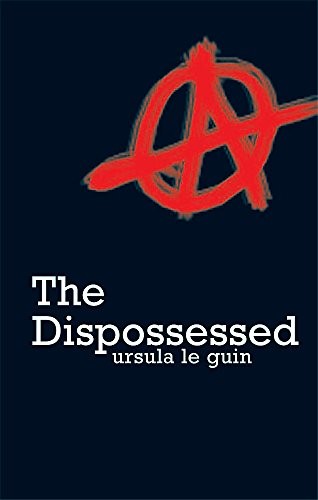jared@mathstodon.xyz reviewed The Dispossessed by Ursula K. Le Guin
Review of 'The Dispossessed' on 'Storygraph'
5 stars
Shevek's purity fascinates me. The main character, Shevek, lives in an austere, nominally anarchistic society on a barren yet habitable planet. Prodigious in theoretical physics, Shevek pursues a kind of unified theorem of space-time that will, among other things, make possible the "ansible" -- an instantaneous communication device invented by Le Guin and common throughout science fiction universes.
The Dispossessed escapes science fiction as do so many great imaginative novels. Anarres, Shevek's home planet, has a twin, Urras, flush with diverse ecologies and aggressively competitive political factions. Yet we readers see surprisingly little of the political strife on Urras -- save one harrowing chapter -- just as we examine very little of Shevek's physics. Le Guin entrances us readers with this subtle slight of the writer's hand: what's hidden on Urras must be all too familiar to us, all too real; what's slowly, impossibly being revealed on Anarres must be wholly unfamiliar to us, a multi-chambered dream deferred by our "real" world's physics, ecology, politics, and supposed values.
What I am trying to say is that the society on Anarres -- most especially in 1974 when the hellish humanitarian disasters in the USSR, People's Republic of China, People's Republic of Korea, Argentina, Chile, Afganistan, and among many other nations I regretfully omit -- the anarchistic, utilitarian society of Anarres feels truly impossible to readers, especially in the present day United States of America, who accumulate their precious free-time for reading via the "propertarian" activities universally shunned by Shevek and his compatriots. I challenge the reader to imagine which is more likely: a theoretical discovery in physics that leads to faster-than-light communication, or a lasting society based exclusively on shared goods and labor that manages to survive on a desert planet with just a dozen or so native species of plants and animals?
Le Guin's genius pairs both seemingly impossible premises in the life-story, in media res, of Shevek. He invents the impossible physics through a lifetime of musing on a version of Zeno's paradox; he believes and practices fully the anarchistic values of his world. Shevek has definite flaws. Intoxicated at a party on Urras and confused by his host's flirtatious behavior, he sexually assaults her. Apparently this does not bother his patrons on Urras; they're more interested in Shevek's unfinished theorems and one's left unclear whether the men on Urras -- who hold all the nominal power in the planet's society -- even consider sexual assault a crime. (Another trick by Le Guin. I suspect you'd miss the omission of justice if you are, knowingly or not, complicit in rape culture as it's called today.) At the same time, Shevek's most significant virtue lay not in his theories but in his ethics. He visits Urras and returns to Anarres with the explicit goal of reforming both societies. If his physics frees matter from temporal constraints, his ethics attempts to free individuals from egoistic competition.
At which point, we readers must again ask ourselves which is more likely: divorcing physical substance from temporal conditions, or extricating the individual from a social order that she herself does not consent?
In raising these questions, Shevek challenges the reader in subtle ways. Le Guin truly shows us how to seek purity in our own thinking -- timelessly, without silly assumptions about, in 1974, whether the American-controlled nationalists or the Soviet-controlled nationalists are right in their respective nationalism. We do good to consider this questions today, in the revolutionary year of 2016.

